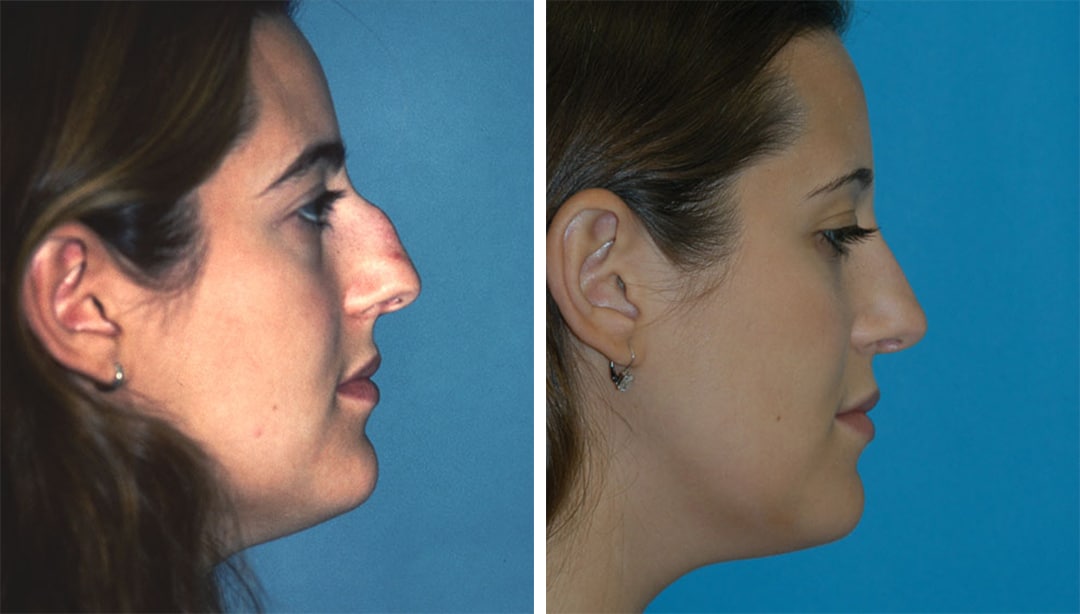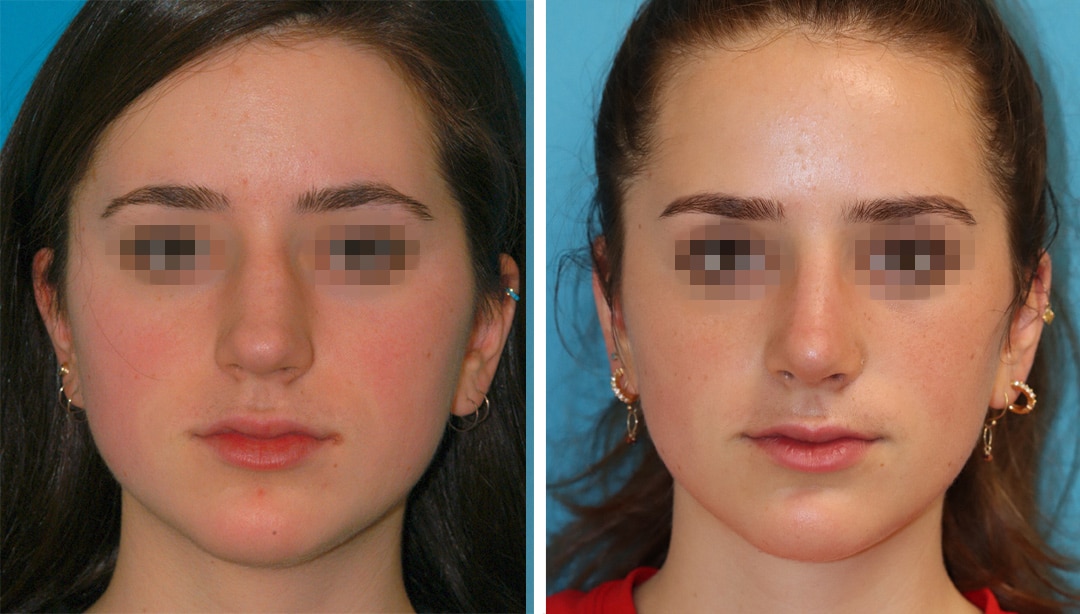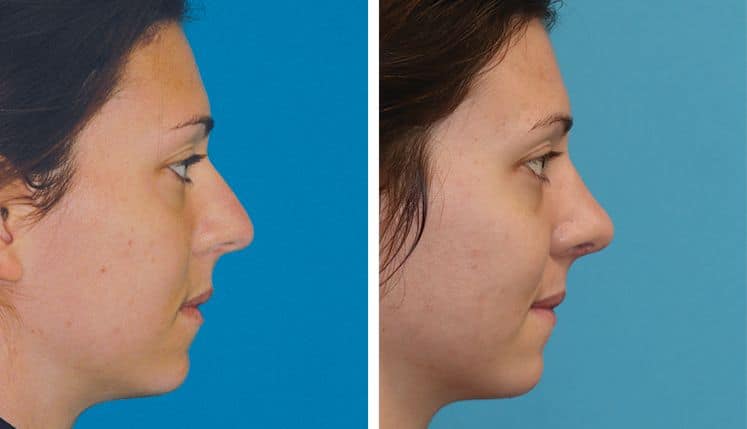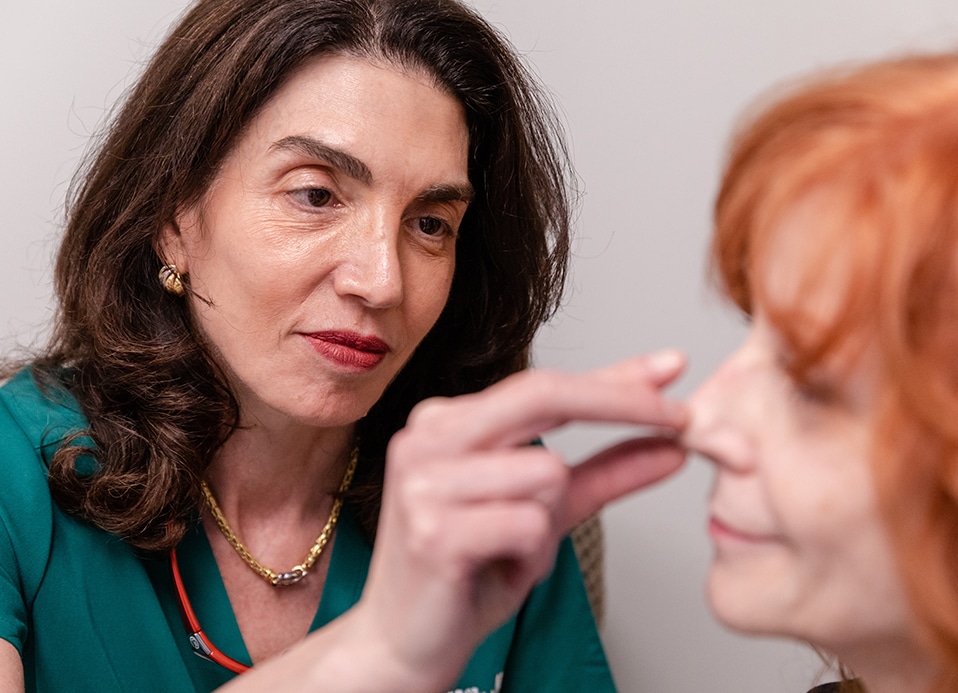Rhinoplasty, or a nose job, is a cosmetic procedure that changes the shape and size of the nose. Though it is a common and routinely performed procedure, rhinoplasty is a complex surgery that requires an expert facial plastic surgeon and detailed aftercare instructions for optimal recovery. Here is what you need to know for a seamless and successful rhinoplasty recovery:
What to expect after rhinoplasty?
It is normal to experience swelling, bruising, and discomfort after the surgery. You will likely be given a nose splint or cast that should remain on the nose for up to seven days after your procedure. It is essential to follow taping instructions during this period, as it supports the reshaped nose while healing and can reduce side effects such as bleeding and swelling. Mild side effects are expected, and patients should plan to have two to three weeks of downtime before returning to normal daily activities.

How long does it take to recover from rhinoplasty?
Complete results can take up to one year after rhinoplasty surgery. The amount of time it takes to recover from rhinoplasty depends on the individual patient and the extent of their procedure. Generally, the patient can see visible improvements within six weeks of the surgery; however, residual swelling and bruising may take up to a year to fully dissipate.
How long does swelling last after rhinoplasty?
While most swelling will subside within six to eight weeks of the initial procedure, refinement of the nasal tip can take up to one year.

What to expect two weeks after rhinoplasty?
Most of the visible side effects should dissipate within two weeks of rhinoplasty. Patients can expect to have significant improvement if they follow precise aftercare instructions. Some may see minor swelling and discoloration, but this is expected and should subside over time. The first two weeks are critical to encourage proper healing, and many patients see noticeable results with appropriate care.
When can I wear glasses after rhinoplasty?
After rhinoplasty surgery, patients are typically advised to refrain from wearing glasses for up to six weeks. Avoiding eyewear can reduce the risk of structural damage from consistent pressure and allows the nose to heal correctly. Contact lenses may be worn after surgery, but it is best to delay the use of glasses until you have been cleared by your doctor.
When can I sleep on my side after rhinoplasty?
Patients may start sleeping on their side 4-6 weeks after their rhinoplasty procedure. Sleeping on the side or stomach puts additional pressure on the nose, which can cause structural damage and impact the final results.
When can I drink alcohol after rhinoplasty?
It is recommended that patients wait for at least two to three weeks before consuming alcoholic beverages post-surgery. This is because alcohol can interfere with the body’s natural healing process and cause increased swelling and bruising.
How long after rhinoplasty can I workout?
For most patients, strenuous activity and exercise should be avoided for at least two weeks following rhinoplasty surgery. This allows the incisions to heal properly and reduce the risk of bleeding and bruising. After two weeks, patients can typically resume light exercise, such as walking, and can gradually increase their activity level as they feel comfortable. Sports or activities where the nose can be easily impacted should be delayed for at least two months after surgery.
When can I wear makeup after rhinoplasty?
After one week, patients can typically resume wearing makeup but should avoid applying pressure to the nose. If you have a nose splint or taping, you may begin applying makeup after it is no longer needed.
How long after rhinoplasty can I breathe through my nose?
Breathing through the nose can become easier within one to two weeks after surgery and will improve as the nose heals. May patients experience normal breathing one month after rhinoplasty.

How to clean the nose after rhinoplasty?
You can clean your nose with a saline solution, but it is critical to avoid poking or prodding the nasal passage with tweezers or Q-Tips. The nose is self-cleaning and does not require much additional help in the days following surgery.
What can I eat after rhinoplasty?
Stick to soft foods that are easy to chew, such as soups, yogurt, and tender protein. It is important to maintain a healthy diet to support a healthy recovery. Hard-to-chew foods can engage the upper lip too much and interfere with healing.
How to sleep after rhinoplasty?
Sleeping on the back with an elevated head is recommended in order to keep the nose in its most natural position, allowing for a seamless and successful recovery. After 4-6 weeks, patients can sleep on their side or in other positions.
Why You Should Choose Dr. Brunner for Your Rhinoplasty
Eugenie Brunner, MC, FACS, is a double board-certified facial plastic surgeon committed to beautiful, natural-looking results. Dr. Brunner’s distinguished facility in Princeton, NJ, offers a range of surgical and nonsurgical procedures, including rhinoplasty. With advanced technology, an artistic eye, and years of experience, Dr. Brunner helps patients achieve results everyone will notice, but no one will know. Contact us to schedule a consultation and learn more about rhinoplasty and what to expect after the procedure.

